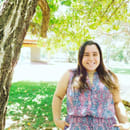It is hard to believe that almost nine months have passed since the devastating hurricane season in which our island, Puerto Rico, played the fallen hero in these last natural disasters. Hurricane Maria has caused a significant blow to our island’s social, cultural, financial, and educational stability. With the latter, many of our undergraduate and graduate students have struggled to keep up with their education. In reaction to this situation, many institutions offered relief semester stays or fellowships for students to apply and finish their education outside of Puerto Rico. Two of our very own MAEE graduate students, Ashley Miranda & Alexander Soto, were rewarded with a 10-week fellowship at The University of Indiana-Bloomington to successfully complete their thesis projects. The IUB-UPR Education Graduate Scholars Program started on February 18, 2018 and lasted until April 30, 2018.
During our conversation, Ashley Miranda and Alexander Soto expressed their excitement and experiences during this opportunity. They mentioned that the university offered this fellowship as a way for graduate students to concentrate and finish their final stages of their thesis project by providing full access to their facilities and campus resources within the School of Education, and the campus itself. As Ashley mentioned, their goal was to “provide graduate students with room and board, internet, electricity and resources in general to be able to complete [their] thesis projects.” This was a fellowship where 6 graduate students were selected to participate, 4 of these graduate students were from The University of Puerto Rico, Rio Piedras and 2 were from the University of Puerto Rico, Mayagüez.
(Visiting Scholars: Ashley A. Miranda Negrón & Alexander Soto Román (UPRM), Francisco Muñiz, Elenita Irizarry Ramos, María Gil Barvo, María B. Serrano Abreu (UPRRP)
Alexander talked about how this opportunity was key to the completion of their research and provided space to grow and think beyond their main focus of their thesis projects. He noted that, “this fellowship was only offered to students who were at the last stages of their thesis work. As in, we were not there to take classes, or work as graduate teaching assistants, it was strictly just to focus and write for our theses. They basically created an environment for the visiting scholars to finish their thesis.” This fellowship was possible because of the efforts of the creators of the program, Dr. Bradley Levinson & Dr. Carmen Medina, and the team of mentors, Dr. Martha Nyikos, Dr. Faridah Pawan, Dr. Carmen Medina, Dr. Bradley Levinson, Dr. Rebecca Martinez & Dr. Mitzi Lewison.
During the fellowship, their role in the process was representing UPRM as visiting scholars. Ashley points out that the fellowship was not meant, “to promote brain drain, as in the purpose of the fellowship was not to attract students to another university so they can transfer out or apply for graduate studies. The initiative’s purpose was for students to go back to Puerto Rico and defend our projects.” As visiting scholars, each graduate student got appointed to an advisor, who would help them through the final stages of their project and provide constant feedback and scholarly sources to improve aspects of it. Alexander stated how meeting with his advisor, Dr. Faridah Pawan, and networking with other graduate students from the School of Education, and other sectors, opened his perspective about his own thesis. “I think it’s also the fact that you had people excited about your research around you all the time. I had all these listeners who would give you feedback on your study and ask you questions you probably never even thought of, they would say comments like ‘have you thought about this, this and this’, which helped me a lot. It was really nice receiving all the extra feedback and support from other scholars.”
In terms of resources, they had access to everything available in the university, as if they were graduate students from UI-Bloomington. These included access to the campus mailing list, where they were invited to many social gatherings and events, access to competitive databases for scholarly articles and to find additional sources to give credibility to their own writing, dorms with basic necessities such as electricity and water, which are still limited in some areas in Puerto Rico, and study/common rooms where they got to interact and converse with different peers and share their findings. For their well-being, they also had access to the recreational center and gym facilities, and these offered daily classes to de-stress and calm their minds from the heavy workload. While all this sounds like paradise for a graduate student, these sources could also make it easy to, “forget about the bigger goal because you had like 3 or 4 events lined up, Friday, Saturday, and Sunday. That’s definitely a lot of time wasted if you are not careful,” explained Alex. At the same time, “they encouraged us to do our work, but they also motivated you to network, get to know other people, and explore the university. There were so many social events happening at the time that in a way it was a little bit overwhelming. One needed to learn how to divide their time between writing for your thesis, and going out to enjoy the events around campus, meet professors and people, and learn about their culture, the environment around campus,” informed Ashley.
Since this opportunity was provided by the kindness and compassion of the faculty in charge of creating this fellowship, the visiting scholars were not expected to promote the university in any shape or form when they got back to the island. However, Ashley and Alexander always had the island in mind and often thought of ways on how they could make an impact with the island-wide situation. As a result, this fellowship prompted them to reflect how their research impacts Puerto Rico and how every research should keep in mind how it will impact Puerto Rico socially and politically.
Ashley Miranda’s Thesis project is titled “Translanguaging: Using Sign Language in the Basic English 3101 Classroom.” Her thesis focused on translanguaging and using American Sign Language in the basic English classroom where she taught her students five signs and had the students use them in the English classroom whenever they wanted to demonstrate a concern or confusion with the class material. Students usually show fear with pronunciation in English as their second language. She thought teaching them the signs, ‘understand’, ‘did not understand’, ‘questions’, ‘yes’, and ‘no’ would help them be more willing to communicate their concerns with her in class. She also incorporated aspects of deaf culture to create awareness of the community in her class, and to express the importance of communicating with others through translanguaging practices and learning American Sign Language.
Alexander Soto’s Thesis is, “Functions of Graduate Instructors’ Codeswitching: A Case Study in a Puerto Rican ESL Classroom.” During the fellowship, his research changed a lot in terms of the focus of the study, thanks to the databases of the campus, where he found more than 20 different articles where most connected directly with what he wanted to do with his research. The purpose of the study is to analyze the specific functions of graduate teaching assistant’s code switching when teaching basic level students in an ESL classroom environment. At the end, he narrowed it down to the instances where the instructors used code switching while teaching, to describe and categorize what use the instructors had for code switching in the classroom. “It’s funny because when you are stuck in one place you would think that your research is ground breaking and revolutionary, but here I found similar studies to mine in Turkey, Afghanistan, and other countries. I wanted to deviate away from the notion that instructors use code switch without any purpose or function, that they do it randomly and translate in the classroom because they lack the required vocabulary to teach. I wanted to show that instructors do use code switch strategically and that they are conscious of their functions and purposes in the classroom.”
I am happy to say that both Ashley Miranda and Alexander Soto successfully defended their theses projects this semester, on May 23rd and 25th, and obtained their Master of Arts in English Education. In addition, both of them got accepted by Peace Corps to work as Secondary English Teacher Trainers in Costa Rica.
On a final note, both Ashley Miranda and Alexander Soto agree that graduate students have to be passionate with what they are researching, and they have to give it importance, if not “you are going to have a difficult time producing a well-written and structured project.” As a solid advice for graduate students, they recommend to not block or randomly delete ‘cartero’ emails, but instead “take about 10 minutes of your time to scroll through the information our campus offers.” It is essential for graduate students to not only achieve success in their courses and complete a thesis, but to also get involved in different academic activities, such as participating in conferences, professional and academic associations, and seek out off campus opportunities, hence fellowships. It is important to, “not be afraid of the application requirements or how competitive the opportunity might be, what’s important is to have the courage to apply and encourage yourself to find venues where you can grow as an academic, and as a person as well.”
As mentioned before, various institutions, such as Pomona College in Claremont California, Cornell University, Penn State, and many others offered undergraduate students a relieve semester where they could go to these institutions and continue their studies. However, for graduate students it was a different story, for little to no institutions offered any opportunities for this population of students. However, these opportunities do exist, one must look for them and apply for every possible opportunity that comes your way. What is essential is to not limit ourselves to what is possible to do within our comfort zone, but instead to move forward and embrace the challenges ahead.



